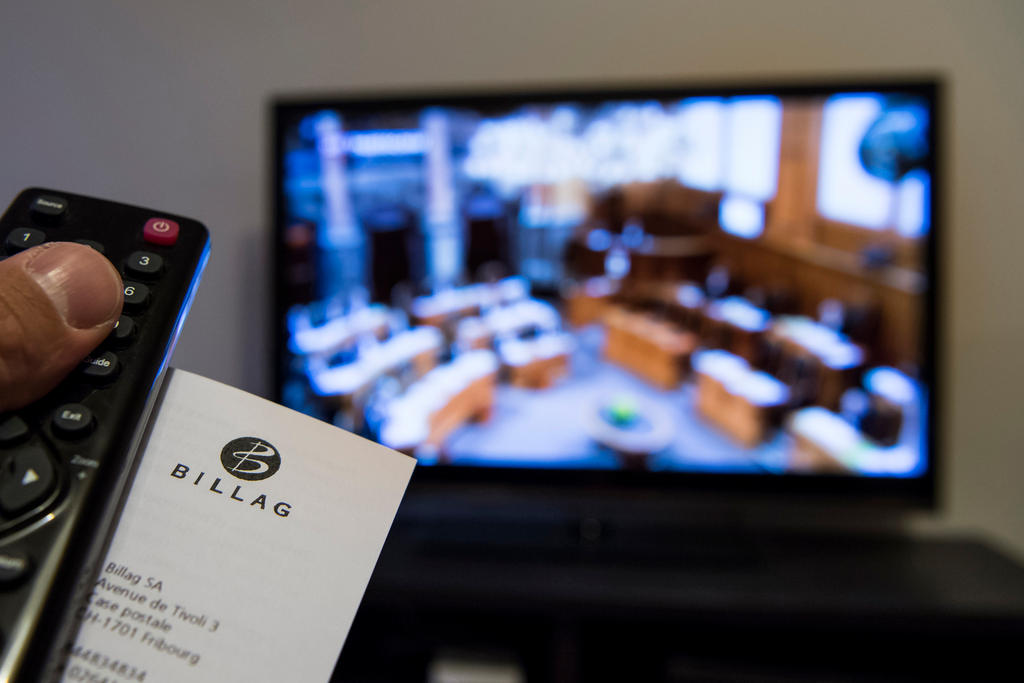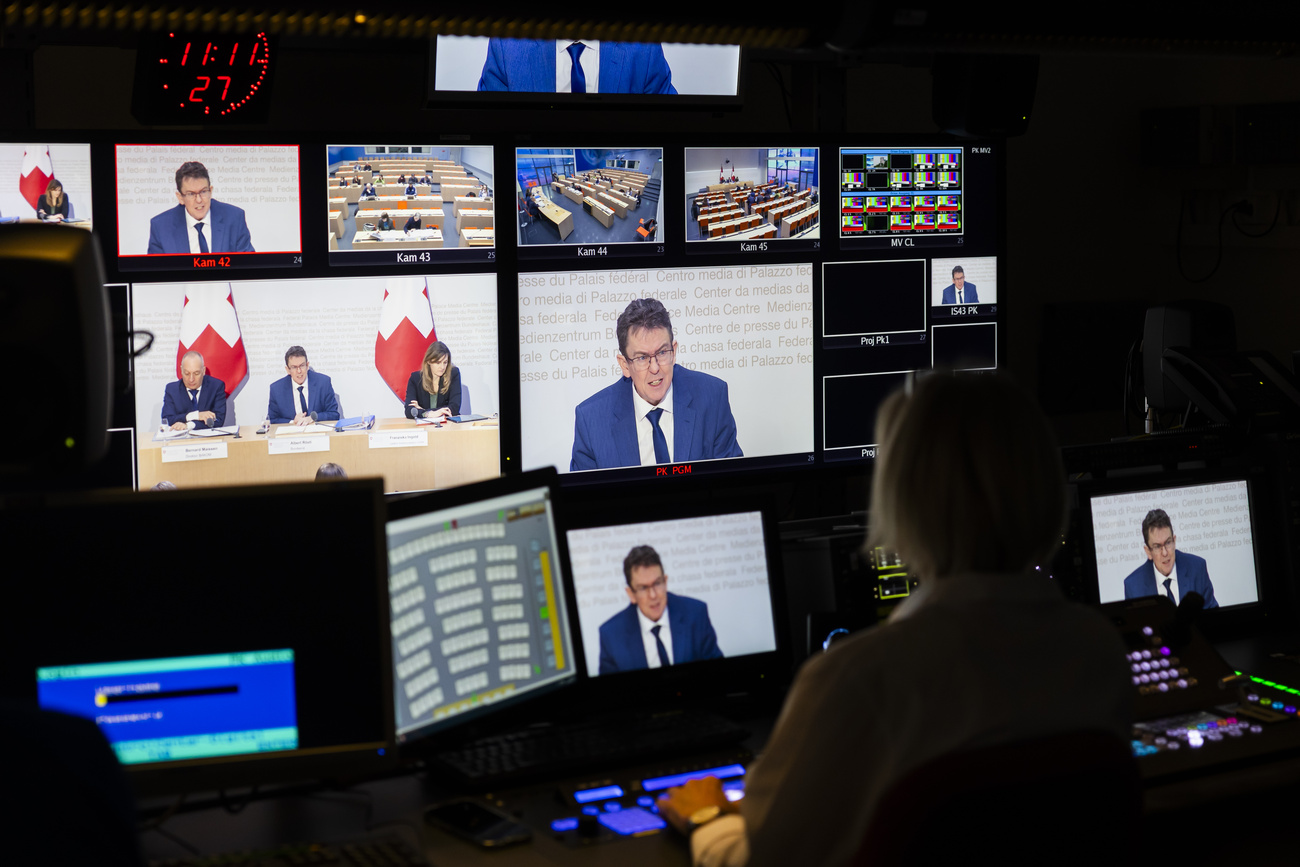
Parliament rejects ‘No Billag’ licence fee initiative

The House of Representatives has followed the Senate in rejecting a so-called ‘No Billag’ initiative to scrap the compulsory Swiss TV and radio licence fee. Parliamentarians also turned down a counter-proposal to cut the annual fee by half. The issue will now go to a nationwide vote.
The majority of the lower house (122 in favour and 42 against) voted on Monday to reject the ‘No Billag’ initiative. The name comes from the company charged with billing consumers for their use of Swiss Broadcasting Corporation (SBC) services. Opponents who consider the payment to be an undue compulsory levy imposed on citizens want to scrap the Billag fee.
A majority also rejected counter-proposal from the conservative right Swiss People’s Party to reduce the annual CHF451 ($466) fee to CHF200 (108 in favour and 70 against).
Diversity and democracy
As in the Senate two weeks ago, there was a lively debate on Monday over the role and future of the public broadcaster.
Roger Köppel of the Swiss People’s Party said the SBC was “too big, too dominant and too powerful” and crushed the private sector. He said that since the public broadcaster was unable to fix its own limits, so it was the role of parliament and citizens to do so.
The centre-right Radical parliamentarian Christian Wasserfallen, who backed the counter-proposal, said the licence fee meant the SBC had no competition in the Swiss audio-visual market. As well as a lower licence fee, he wanted the public broadcaster to share more content, especially audio and video, with other Swiss private media groups.
All the other political parties were against the dismantling of the SBC, citing its role in supporting cultural and linguistic diversity in the Swiss media landscape.
The Green Party parliamentarian Balthasar Glättli argued that although the initiative focused on the financing of the SBC, people should not forget the media’s democratic role and the issue of the “liberty of the press”. He said the initiative would lead to an additional concentration of media groups and a danger for plurality in Switzerland.
Other parliamentarians argued that halving the current licence fee would take a heavy toll on the SBC.
Swiss Abroad respond
A people’s initiative was launched three years ago, and succeeded in collecting enough signatures to force a nationwide vote on the Billag question. The campaigners argue the fee violates the freedom of media choice for citizens because they pay a fee regardless of their media consumption.
However, SBC Director General Roger De Weck has described the initiative as an attack on public service broadcasters. He maintains that an approval of the initiative would mean the end of the SBC.
Commenting on parliament’s rejection of the “No Billag” initiative on Monday, De Weck said it was a sign that parliament wants “lively audio-visual production and a quality public service for everyone across the country. This is a service that the SBC and 34 private channels, which are financed via the licence fee, guarantee for the public, with an offer that contributes towards the idea of living together in the heart of a diverse system.”
In a statement, the Organisation of the Swiss Abroad (OSA) welcomed Monday’s parliamentary decision, saying it sent a strong message.
“The No Billag initiative would restrict diversity of opinion and cause huge damage to democracy,” declared OSA President Remo Gysin in a statement.
Four languages, 17 channels
The SBC has an annual turnover of CHF1.6 billion which is mainly used to operate 17 radio and television channels in four national languages (German, French, Italian and Romansh). Part of the revenue also goes towards private radio and TV stations with a public service role.
The SBC, swissinfo.ch’s parent company, is funded by licence fees (75%) and income from advertising (25%). Swiss residents who receive radio or television services must pay licence fees, regardless of which programmes they watch or listen to, and no matter how they watch or listen (terrestrial, cable, satellite, via the phone line, on their mobile phone or via the internet).
The fee amounts to 0.74% of the average income in Switzerland (CHF61,152). Of the annual CH451 fee, CHF165 is used for radio and CHF286 goes towards television.
SWI swissinfo.ch – the news platform that you are reading at the moment – is the international arm of the SBC and publishes content in ten languages.

More
What’s the price of public broadcasting in Switzerland?

In compliance with the JTI standards
More: SWI swissinfo.ch certified by the Journalism Trust Initiative




























You can find an overview of ongoing debates with our journalists here . Please join us!
If you want to start a conversation about a topic raised in this article or want to report factual errors, email us at english@swissinfo.ch.